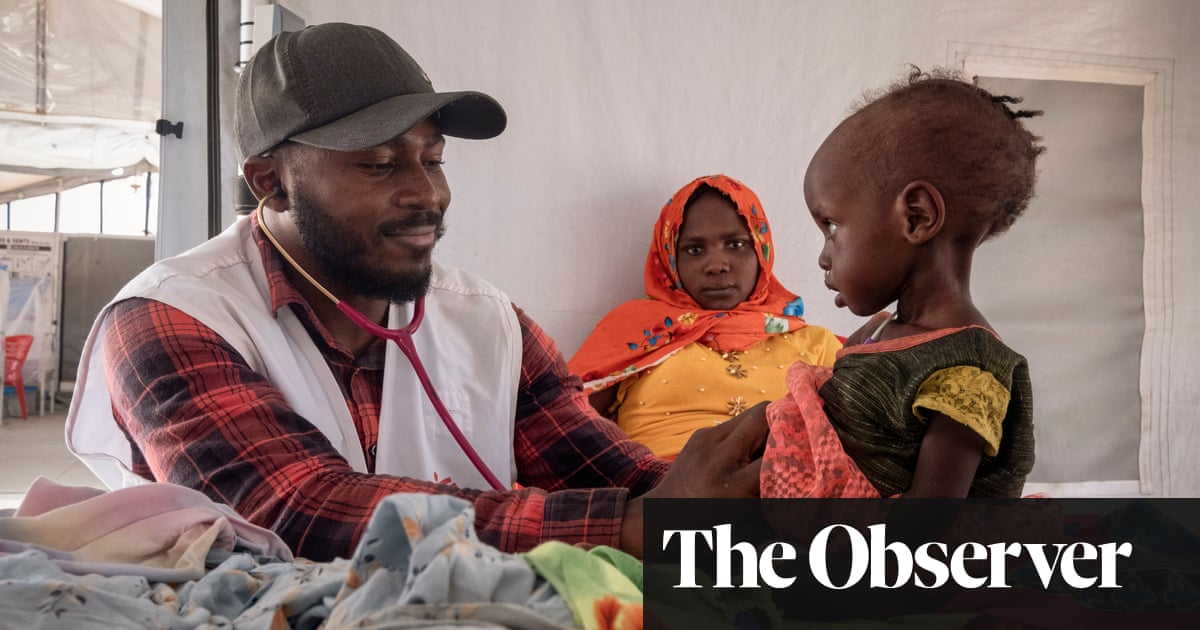Parents are killed in front of their children. As they cry for help, the children die too. Panicked people fleeing attacks become moving targets. Entire communities are set ablaze and destroyed. Dislocation, hunger and thirst follow, a prelude to famine and death. Abandoned, terrified, unprotected, unseen, the people despair.
This is not a description of Gaza today. It’s Sudan, war-torn, desperate – and largely ignored. Upper estimates of the number of people killed there since a senseless civil war erupted just over one year ago reach 150,000. About 9 million residents, principally in the western Darfur region, have been displaced. Aid agencies say 25 million people are in need of urgent assistance. The future cohesion of a country already cleaved by the 2011 secession of South Sudan and conscious of next-door Libya’s disintegration is at stake.
On the Richter scale of modern horrors, such dire statistics make Sudan the world’s worst humanitarian emergency. There are many others of similar magnitude, of course – the conflict threatening to tear Myanmar apart, the anarchy besetting Yemen, the famine looming over Ethiopia, the endless, pitiless misery of Somalia and Haiti. Yet no matter how these vast human tragedies are measured and counted, they, unlike the hugely publicised, minutely scrutinised Israel-Hamas war, have a basic common denominator: neglect.
Sudan briefly caught the headlines last week, not because the world’s wealthier nations, their leaders and media outlets suffered a sudden fit of conscience, but thanks to an independent, well documented and very graphic investigation by Human Rights Watch (HRW). It concluded that a seven-week campaign of killings and abuses early last summer by Sudan’s rebel Rapid Support Forces (RSF) and allied Arab militias against the Massalit people and other non-Arab communities around West Darfur’s capital, El Geneina, involved multiple war crimes and crimes against humanity, and amounted to ethnic cleansing.
The RSF “systematically targeted unarmed civilians, especially boys and men, for killings. They also unlawfully killed people who had already been injured, including children and women,” HRW said. Large areas of El Geneina were destroyed. The attacks culminated in mid-June, as tens of thousands of civilians attempted to escape into Chad. “As part of this campaign, the RSF and its allies committed pillage, torture, rape and other forms of sexual violence, wilful killing… and forcible transfer. As a result of these heinous crimes, almost half a million refugees from West Darfur have fled to Chad.”
Extreme violence in Darfur is nothing new. Mass killings in the period 2003-4 – when an estimated 300,000 people died – were largely attributed to the RSF’s government-sponsored predecessors, the so-called Janjaweed Arab militias. Those massacres eventually led to charges of genocide, war crimes and crimes against humanity being brought by the international criminal court (ICC) against Sudan’s then dictator, Omar al-Bashir, and others in his regime. Now the conflict, rooted in ethnic, religious and territorial rivalries dating back hundreds of years, is reigniting, this time in the guise of a power struggle between Sudan’s army, which ousted Bashir in a coup in 2019, and the RSF.
It’s not over by any means. What happened in El Geneina last year, when the UN says 15,000 people may have died, could happen again imminently. El Fasher in North Darfur, the last major regional city under the control of the Sudanese army and home to an estimated 1.8 million people, including many refugees, is now besieged by the RSF. The fear is that another orgy of violence is about to erupt, unchecked by effective international intervention and largely unnoticed by the world beyond Sudan. The city is “on the precipice of a large-scale massacre”, the US ambassador to the UN, Linda Thomas-Greenfield, warned recently. “History is repeating itself in Darfur in the worst possible way.”
Some countries, such as the UAE and Russia, are reportedly actively stoking the war. The Wagner group, the arm’s-length mercenary organisation used by Vladimir Putin’s Kremlin to extend its influence in the Sahel region in competition with the west, is said to have supplied missiles to the RSF early in the conflict. Russia has long coveted port facilities in Port Sudan on the Red Sea.
The UAE insists that it sends only aid, not weapons. Meanwhile, on the other side of this undeclared proxy contest, Egypt and Iran back the Sudanese army commander, Gen Abdel Fattah al-Burhan, against the RSF leader and former Janjaweed chief, Gen Mohamed Hamdan Dagalo, also known as Hemedti.
after newsletter promotion
Human Rights Watch proposes a new UN mission to protect civilians, more sanctions on named RSF leaders, an international arms embargo on Sudan and accelerated ICC war crimes investigations. That is entirely right and sensible. But will it happen, in whole or in part? It’s doubtful. The US, UK and the EU have taken only limited action so far. After Ukraine and now Gaza, it’s obvious their attention is elsewhere. But that neither explains nor justifies indifference. Attitudes would be rather different if all this were happening in Europe, not Africa.
The HRW report’s conclusion is blunt yet accurate: “UN security council members have wilfully failed in their responsibilities to prevent further atrocities.” Commentators complain that the world ignores Sudan. The truth may be worse. The world knows but doesn’t really care.

